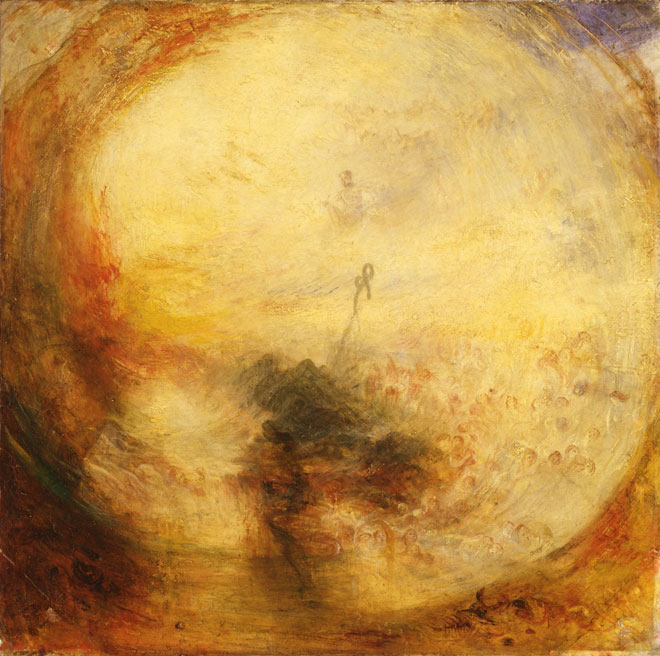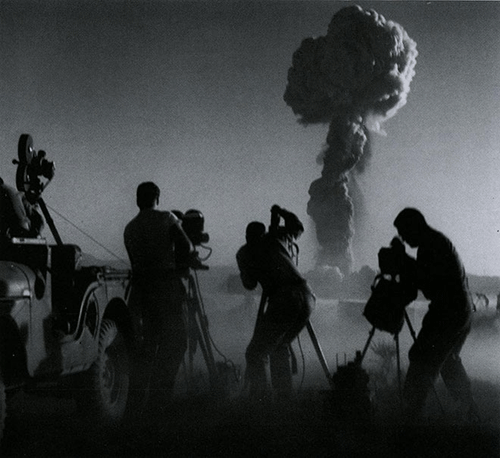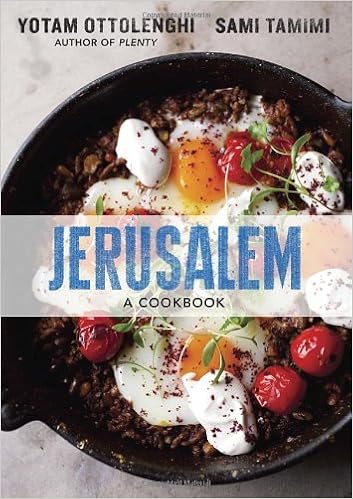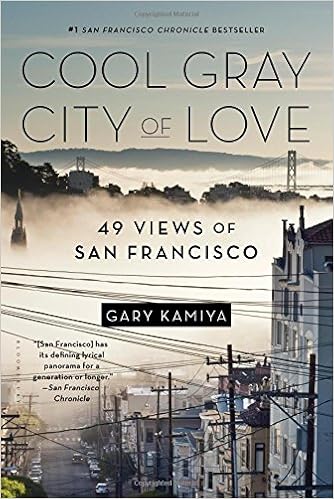OISE – Jan. 19, 2016
Thanks for attending. Please feel free to email me at risa@cabal.org if you have any questions.
Here are the two parts of my presentation:
OISE – Jan. 19, 2016
Thanks for attending. Please feel free to email me at risa@cabal.org if you have any questions.
Here are the two parts of my presentation:
Speculation abounds on whether Tut’s tomb was just a rush-job and was really a part of a larger tomb, maybe Nefertiti’s.

I attended and fully enjoyed many Pan Am and Parapan events this summer. The summer started out with a huge event on the Bloor Viaduct, one block from our house – the torch relay passed through and there was a concert and the reveal of the Luminous Veil (lighting of the suicide barrier). It was so cool to be on the closed bridge with so many other people. On opening day we went over to City Hall to watch the opening ceremonies. For actual sports I was lucky enough to go to beach volleyball, indoor volleyball, sitting volleyball (gold medal men’s game), women’s wheelchair basketball, dressage, and show jumping. It seems so long ago now but it was an amazing summer.
I really haven’t blogged for a long time. So here’s a quick list of things I have explored and liked.
JMW Turner: Painting Set Free
An interesting exhibit that explores Turner’s later, more creative and diverse years as a painter. Highlights beautiful scenes from Venice (a place I would like to go) and his incredible work with light that inspired the Impressionist painters (who I love).

Camera Atomica
A very interesting view of how photography and the media have both recorded and shaped people’s view on nuclear power and nuclear war since the dawn of the atomic age. One photo in particular stood out for me; a 1950s image of a navy admiral and his wife cutting a cake in the shape of a mushroom cloud. Were they really so superficial and short sighted?

East Side Players – Wonder of the World
We went to see this hysterical play by David Lindsay Abaire at the historic Papermill Theatre at Todmorden Mills, just down the hill on Pottery Road. Best part: assistant stage manager Felicity Cormier – Val’s sister.


Prime Minister Justin Trudeau
How refreshing – a cabinet that looks like Canada, a ministry named ‘science’, government members with brains that are allowed to speak to the media! That are allowed to speak, period. Change is amazing.
Skating Season
Patrick is back – yay. However, the guy makes me nervous because I never know when this quad-committing wonder will double a jump. I’ve seen him skate a few times in Stars on Ice. He’s no Kurt Browning yet. Kurt happens to be my all-time favourite skater! I was happy to hear he won Skate Canada. I do truly wish him luck. I’m excited about Canadian ice dancers as always. And so far I like David Pelletier as commentator on CBC.

Murdoch Mysteries
My favourite CBC show. My favourite show, period. I am very sad to see Dr. Grace leave. I guess it’s too much to have two women coroners in the early 1900s. While I’m very happy that Murdoch and Dr. Ogden are happily married, I hope her career won’t take a back seat.


Pompeii: In the Shadow of the Volcano
A really thorough look at life in the early Roman Empire. I saw it once on teacher appreciation day at the ROM and I liked it so much that I took my grade 11 world history class. Unfortunately the guide talked too much and the kids didn’t get to see enough of the exhibit. Though she was very informative, she didn’t allow them to discover anything for themselves. One of my favourite items was the carbonized bread. Rome was all bread and circuses.

Pan Am and ParaPan Games, Toronto, summer 2015
I was lucky enough to be a spectator at beach volleyball (men and women), indoor volleyball (men and women), show jumping, dressage, wheelchair basketball, and sitting volleyball (gold medal match). I had an amazing time almost all summer long. When I get my act together I will post some of my own photos. Val tells me he has purchased some Pan Am items from the auction. That worries me.

Yotam Ottolenghi and Sami Tamimi’s Jerusalem
I often peruse cookbooks, stopping to admire the photos and check out potentially vegan recipes. Rarely do I read a cookbook from cover to cover. In preparation for this year’s Thanksgiving lunch at our cottage, I read this entire book. I ended up making green bean, eggplant and rice dishes from it. I don’t know how everyone else felt but I loved the green bean salad with capers and intriguing spices and the rice with wild rice and chickpeas. The eggplant took way too much of my time for little reward. The cultural similarities between Israelis and Palestinians is fascinating.

A Chef’s Life
I’m not addicted to Netflix. I may be addicted to the PBS channel on our Roku. It allows me to watch A Chef’s Life, a PBS show following the life and work of North Carolina chef Vivian Howard. So far in two seasons there has only been one dish I could actually eat. But I keep watching because Vivian Howard and her husband Ben Knight are very real. I looked into how long it would take to drive to Kinston, North Carolina from Washington, D.C., but it’s too long for a side trip on a potential March Break trip.

Fruit Chart
In my latest attempt to lose weight I have been trying to reduce my sugar intake. I found this chart quite interesting. We’ll see if it helps me.

http://www.telegraph.co.uk/foodanddrink/healthyeating/9987977/How-to-kick-the-sugar-habit-tips-and-low-sugar-recipes.html
Poldark
I found another PBS show (actually, another Masterpiece show) to fill in the void when Downton Abbey is not available. All I will say is that scenery is beautiful. But I am awaiting the final season of Downton. Please let Anna and Mr. Bates find some happiness!


Cool Gray City of Love by Gary Kamiya
Bloomsbury, 2013
I don’t tend to read happy or uplifting books. So it should come as no surprise that the gem of a book I just finished was not self-selected. Val got it as a gift from a friend of his who is currently living in San Jose, California. The book is a collection of 49 ‘sketches’ of San Francisco. I took posession immediately after it arrived in the mail a few days ago.
Before getting into the book, I want to contrast it with my usual types of books. Right now I am also reading (a.k.a. plodding through) Anne Applebaum’s Iron Curtain: The Crushing of Eastern Europe, 1944-1956. I have been reading it on and off for about two or three months – it is that heavy. Though Applebaum is an amazing writer and fills her book with meticulous details about the events that brought Poland, East Germany and Hungary under Soviet control, she also fills her books with horrors. However interesting the stories are, they are sad and they just go on and on. It is for that same reason that I couldn’t finish her earlier book, Gulag: A History.
No wonder I grabbed Cool Gray City of Love and didn’t put it down until I finished it.
I was also deeply attracted because I have a thing for San Francisco. Most people know I’m not much of a traveler, yet I have been to the city by the bay four times (I know this is not much in the annals of travel but it is for me). Each time I’ve stayed somewhere different: touristy Union Square in a posh hotel, shoppy Union Street in a potentially seedy motel, upscale Cow Hollow in a nicer motel a block away from a granola-style restaurant, and Emeryville in a standard Hilton Garden Inn (doesn’t really count – it’s across the bay at the end of the Bay Bridge). Last time Val and I were in San Francisco, only for a day, it was a wonderful day. We picked one thing to do, walk up Telegraph Hill, and it happens that it’s Kamiya’s favourite place in San Francisco. Apparently there’s a lot more to it than the views.
Kamiya is one of those writers who fills his chapters with apropos literary references, few of which I get because I’m not a fiction reader. However, he mostly paints city pictures with his own cheeky little prose style. He meshes his personal experiences, either familiar recollections or new tours with experts both geological and historical, with the rather odd history of the city. Socrates would have loved this guy having been a fanatical city dweller himself. What’s particularly nice and quite informative is that he goes back to the times when the Yelamu Indians lived on the peninsula and is very respectful of these now-disappeared people’s history.
The book’s genesis lies in Kamiya giving himself the task of ‘learning’ his own city, bit by bit, neighbourhood by neighbourhood. It surely didn’t hurt that he was also quite familiar with it through his years as a cab driver. What a way to learn a city, not just its places but its people. His cabbie stories don’t disappoint, especially the one about luring a gay fare away from a fellow driver. This view of the city gives him an ‘if these walls could talk’ advantage.
The other advantage Kamiya has is his sheer love of his city, warts, guts, glories and all. Natural and man-made, touristy and off the beaten path, he loves it all. He loves the mix of inspiring landscapes and spirited people. He loves their struggles to keep San Francisco unique and non-conformist. And he’s honest about the times when battles have been lost such as in the demolition of entire neighbourhoods in favour of highrises. The story of a neighbourhood called the Western Addition, which was home to Japanese families before they were forced to leave the west coast because of World War Two internment, is quite poignant. When the Japanese left, African Americans moved in. While not all the Japanese returned after the end of the war, some did and the question became what to do with them now that they were back and their homes and businesses were occupied. It reminds me of the story my grandmother used to tell of living in wartime Vancouver: all those nice Japanese people just disappeared.
Kamiya is critical of his city and some of its past decisions; he is not a booster in the 100% unquestioning sense. I can relate to this. I consider myself to live in the epicentre of a beautiful and functioning city. But that’s the view from where I am at Broadview and Danforth in my comfortable life. I don’t sit in traffic for two hours a day. I walk two minutes to the subway when I want to get somewhere downtown.
Toronto may not be knowable in the same way – it’s such a huge sprawling city and so much larger in population. Maybe the old City of Toronto (in which I live) could be approached this way.
The reason that Stephen W. of San Jose (formerly of Toronto and Kitchener) sent this book to Val is that he knows Val is a Toronto-lover. He thinks Val could write the Toronto version of Cool Gray City of Love some day. Val used to write a column on Torontoist.com about hidden places in Toronto. I can think of more than a few times when I’ve benefitted from his knowledge. When we first met he took me on a hike on the Don Valley trails – not the well-worn paths but places that were unknown, at least to Risa from North York. A few years ago he lead a bike tour through the laneways of the east side. A little history, a little geography, a big city made little.
A lot of Val’s love of the city has rubbed off on me. I feel like I know Gary Kamiya and I appreciate where he is coming from. I don’t mind that each one of the 49 chapters ends with his unabashed, almost embarrassing love for his city.
I have long repressed a portion of my early teenage life. Back then, 1983 to be precise, I was obsessed with the band Def Leppard.
Thirteen is supposed to be a memorable age. I definitely do remember some parts of that year such as my Bat Mitzvah and the two pretty dresses I had for the service and the evening party at our house for which my mom made all the food. We (meaning my brother and I) still joke about her having leftover rice pilaf and chicken cacciatore in the freezer.
It was also the first year of junior high – new friends, new school subjects, new routines. And a locker! I had pretty much the same locker and homeroom on the first floor of St. Andrew’s Junior High for the next three years so that hasn’t left me: 7-8-9-G.
The part I have tried to keep bottled up in the past is that I was a giddy little girl who taped pictures from teenie magazines to her walls. Not just the walls, the cabinets, too. And the inside of the cabinets. Not just any band. Only Def Leppard. Joe Elliott in his Union Jack sleeveless shirt was my man.
Why? I have no idea. I guess because he was cute. Sure I liked the music. I guess.
Why has that moment from my past been so hard for me to deal with over the years? It makes me shudder to have been that girl in 1983. Over the years when Def Leppard songs have come on the radio I would quickly turn them off. Classic repression symptoms.
My interest in Def Leppard only lasted a short while. Soon after – I can still remember the day in grade eight – a friend introduced me to U2. So I moved on. In grade ten my English teacher, Mr. Polley, introduced me to music history through Simon and Garfunkel and I never looked forward again in my musical tastes.
In psychological parlance, I went home last night; Val and I went to a Def Leppard concert. Having been married to Val for nearly ten years now, I am aware of his own past with Def Leppard. He apparently went to a concert of theirs at Maple Leaf Gardens in 1991 and he has many of their albums (which seem to be constant re-releases of their previous two big albums) among his MP3 files.
So, was last night a terrifying Freudian moment of truth? No, I unabashedly enjoyed it along with the other 10 000 or so people. No more repression. Musical geniuses they are not (at one point I yelled in Val’s ear that they are a ‘lyrical tour de force’) but they do put on an enjoyably loud and energetic show. Val even remarked that the set was almost exactly the same as in 1991. Whatever. We didn’t go for the intellectual experience.
It seemed that the band (or at least their production company) was in the mood for memory lane as well as the backdrop to most of their show was still photos and video from their own vault. Looking at those photos, many of them from 1983 or thereabouts, was nostalgic; it felt like an invisible psychologist had arranged the whole therapeutic thing for me.
It turns out that memory lane is a good place to visit once in a while.
Note: I would go on the Def Leppard Hysteria on the High Seas Caribbean cruise with Val but I get vertigo.
Here we were on the last two days of class. Sort of working:)
Thanks for everything. Do the course evaluation survey (the tab is on the top left)!!!!!
Great weather gave us all a great day.

Wade Davis, Into the Silence: The Great War, Mallory, and the Conquest of Everest. Knopf Canada, 2011.
I don’t like the thought of mountain climbing; it makes my palms sweat. I do like Wade Davis. That would explain why I picked up a hard cover edition of this 578-page behemoth a few years ago at my local Book City. Thinking back, I was probably also very attracted to the “Great War” part of the title having been on a World War One kick.
Despite the subject matter’s initial lack of appeal, it grew on me. Remembering back to The Wayfinders (which I sometimes use in HSB class – Challenge and Change in Society – to introduce the discipline of anthropology) I recall Davis’ beautiful way with words. Sentence construction, or rather, poor sentence construction, can be a real stumbling block for me in getting through a book. Not so this one. Davis is sleek and clever without being pretentious. Even when the subject matter is pretentious it doesn’t seem so, such as the detailed descriptions of the snooty English public school educations of the lead characters. Or the champagne that they ship across the world to be carried up Mount Everest by Sherpas.
The Great War is part of the subtitle but really deserves top billing. The war in which most of the climbers of the first three British expeditions in the 1920s fought is the glue that binds them all and sets their characters. In that sense it’s the context of the story. However, it builds to so much more. Getting to the summit becomes a battle in itself, three times: classic “man versus nature” stuff (weren’t we all taught that it’s one of the universal themes of literature back in grade seven?). It turns out that it does make for a gripping theme. At first the mountain-climbing-phobic reader finds little interest in the actual expedition. Drawn in bit by bit, or rather foot by foot or camp by camp, the loyal reader is nearly cheering for Mallory to reach the summit even though the tragic end is already known. Biting wind, blinding sun on snow, inept supply chains, broken oxygen apparatus – they cannot defeat the experience and sheer will of Mallory.
In the end it’s not about conquest of nature. It’s about respecting the power of the mountain. Without shoving that theme in the reader’s face Davis makes the point.
Davis also uses an anthropologist’s eye combined with a historian’s brain to reveal the ways the British perceived the Tibetans and their seemingly strange rituals. Being the master of all trades, Davis additionally highlights the photographic firsts that occurred on the mountain and the lengths that photographers went to to take and develop their breathtaking shots.
Since I read The Wayfinders I have said that Wade Davis has the perfect job: National Geographic writer and photographer. As a history teacher, sometimes anthropology teacher, and very amateur photographer, I am jealous.